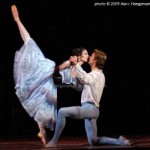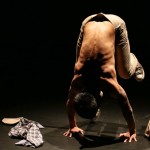Scandal and intrigue have plagued Russia’s Bolshoi Ballet for decades. Today the ballet world was stunned to learn that Artistic Director, Sergei Filin, was attacked by a hooded individual who accosted him on the street and threw acid in his face. Filin is now in hospital with third-degree burns, and doctors are fighting to save his eyesight. This did not appear to be an assassination attempt but a malevolent act intended to inflict enormous pain and suffering. The dance world has reacted with bewilderment.
Ismene Brown sums up what is known so far about this vicious attack, noting the bitter divide between those loyal to Soviet choreographer Yuri Grigorovich and reformers like Filin, who have pushed to modernize the company’s repertory and embrace foreign influences.
Ballet companies outside Russia have known political intrigue but the level of bitterness, hostility and rage does not approach that of the Russians. Though ballet did not originate in Russia, it became a supremely Russian art and a critical element of Russian national identity from Tsarist days through the Soviet era. As a result, the political stakes are much higher in Russian ballet companies than elsewhere.
Jennifer Homans wrote in Apollo’s Angels that, compared to the Mariinsky, whose alumni (mainly defectors) had infiltrated many Western companies, the Bolshoi in the Cold War era appeared “stranger: more oriental and driven less by rules than by passions – and politics.” With this latest display of violence, it appears little has changed at the Bolshoi.
Alexei Ratmansky, who served as Artistic Director in the post-Grigorovich era and is credited with reinvigorating the company during his short tenure, reacted to the attack on Filin in comments that were reported by the New York Times:
Many of the illnesses of the Bolshoi are one snowball — that disgusting claque which is friendly with artists, ticket speculators and scalpers, half-crazy fans who are ready to slit the throats of their idol’s competitors, cynical hackers, lies in the press and scandalous interviews of people working there. The cause of it is the lack of theatrical ethics, which were gradually destroyed in the Bolshoi by specific people. This is the real trouble of this great theater.




